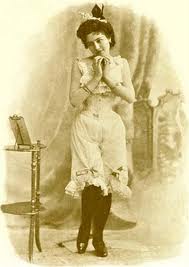Thirty years ago, in September 1982, a professor of computer science at Carnegie Mellon University in Pittsburgh invented the smiley face. That is, the typed smiley face. Scott Fahlman was frustrated by the fact that on the university’s electronic bulletin board — an early version of the online newsgroup — irony was being lost on a number of the geeky scientists participating in these online discussions: they often just didn’t get the joke. Fahlman suggested using a colon, a hyphen and a closed parenthesis — roughly approximating a smile on its side — as a ‘joke-marker’, to denote those entries that shouldn’t necessarily be taken seriously. Little did Fahlman know at the time that his clever and very useful invention would soon spread beyond his newsgroup to the entire college faculty and student body, before ultimately landing on the World Wide Web, where it spawned a whole population and language of what we now call “emoticons”. Fahlman modestly gives credit to Vladimir Nabokov for coming up with the idea before he did; when the Russian novelist was asked by a New York Times writer in 1969, “How do you rank yourself among writers (living) and of the immediate past?”, Nabokov replied with a virtual wink: “I often think there should exist a special typographical sign for a smile – some sort of concave mark, a supine round bracket, which I would now like to trace in reply to your question.”
Is the emoticon a symptom and symbol of our increasing verbal laziness? Are we no longer able to denote happiness or sadness, humor or irony using just our words? Or perhaps this goes beyond verbal competency and effort. In this age of communicating to the masses — with multiple CCs and BCCs on a single e-mail, hundreds of Facebook friends and thousands of Twitter followers around the world, and the risk of a simple mistake or misunderstanding ‘going viral’ — we can’t always depend on ourselves to get it right and on all our readers to even get it. We don’t even know many of the people who are reading our our e-mails, newsletters or posts nowadays, so we’re writing in the dark. Humor and especially irony vary enormously across languages and cultures; even between the Americans and the Brits, there’s a gaping difference in the use, expectation and understanding of irony, especially in everyday communications, so the opportunities for and likelihood of misreadings and misunderstandings are at an all-time high. When the stakes are high, an emoticon might just save the day, preventing lawsuits, tears, or just hurt feelings.
James Marshall has compiled one of the most comprehensive and entertaining lists of emoticons (of the pure keyboard – ie. non-Unicode – kind): with more than 2,000 entries, his Canonical Smiley List is a thing of beauty when you have some time to kill: http://marshall.freeshell.org/smileys.html
Not exactly an emoticon but falling into the same category of emotional-keyboard-shortcuts is the ubiquitous digital kiss: “x”. This is surprisingly not a 20th-century phenomenon: The use of x to denote a kiss dates back to as early as 1763, as cited by the OED. The symbolic X itself is very old, starting with the Medieval practice of allowing illiterates to sign official documents with an X (according to Wikipedia). Kissing the X before witnesses was a sign of sincerity — much like kissing the Bible or a Christian cross, and so the letter X came to symbolize a kiss. The first literary citation of three or more x‘s at the bottom of a letter denoting multiple kisses was in 1901, also according to the OED.*
The phone call was friendly, the kind any two professional contacts might have. A colleague had put Amanda McCall, a comedy writer in New York, in touch with a producer in Los Angeles. The two women had admired each other’s work from afar. They chatted about whether they might want to collaborate on a project. They made plans to talk again.
The next morning, McCall received an e‑mail from the producer. “Absolutely LOVED talking,” the woman wrote, followed by a seemingly endless string of X’s and O’s. That afternoon, a follow-up to the follow-up arrived, subject line “xo.” The body read simply: “xoxoxoxoxoxoxoxo.”
McCall was mystified. Should she e‑mail back? Should she ask her what it meant? Was she weird for thinking this was weird? “I’d never seen so many hugs or kisses in any kind of correspondence, even from my parents or boyfriends,” she says, laughing. “In which case: Was this person actually in love with me? And if I didn’t respond with equal love, was it going to hurt her feelings?”
This e‑mail was extreme, yes—yet it’s an example of a tic that’s come to plague professional correspondence, especially among women. The use of xo to denote hugs and kisses dates back to at least 1763, when The Oxford English Dictionary first defined X as “kiss,” but e‑mail and social media have provided a newly fertile habitat.
“I feel like xo has taken on its own kind of life,” says Karli Kasonik, a Washington-based consultant.
“I do it, most women I know do it,” says Asie Mohtarez, a writer and social-media editor, noting that she prefers a single x to the full xo.
“In my field, you almost have to use it,” says Kristin Esposito, a yoga instructor in New York.
And no, xo is not a habit unique to 20‑somethings reared on Gossip Girl. It has surfaced in the digital correspondence of everyone from Arianna Huffington to Nora Ephron. Wendy Williams, the talk-show host, says she wishes she could stop using it, but admits that she can’t. Anne-Marie Slaughter—foreign-policy wonk, Princeton professor, and she who still can’t have it all—doesn’t xo, but knows several professional women who do. In Diane Sawyer’s newsroom, staffers say, the anchor uses xo so frequently that its omission can spark panic.
As e‑mail has evolved further and further from its postal roots, our sign-offs have become increasingly glib. While Sincerely or With best wishes might have been the ending of choice for a letter or a business memo, these expressions feel oddly formal when pinged back and forth in immediate, high-volume e‑mail exchanges. And so Sincerely begat Best begat Cheers and so on, until, somewhere along the line, xo slipped in.
At first, its virtual identity was clear: a pithy farewell, sweeter than See you later, less personal than Love. Men could xo their wives. Girlfriends could xo girlfriends. It was a digital kiss—meant, of course, for somebody you’d actually kiss. But soon enough, nonstop e‑mails and IMs and tweets began to dilute its intimacy factor. “You could compare [it] to how the epistolary greeting Dear changed over time, originally just for addressing loved ones but eventually becoming neutral,” says Ben Zimmer, a linguist and lexicologist.
Today, xo is so common that researchers at Georgia Tech, Carnegie Mellon, and Stanford have studied its use in social media, and confirmed what most everyone on the Internet already knows: xo is a female phenomenon. Among Twitter users, 11 percent of women xo in tweets, compared with only 2.5 percent of men.
This gender divide has spawned a new breed of etiquette dilemmas, especially in the workplace. Can xo-ing colleagues shore up office alliances, or does the practice cross a line? Does one run the risk of being labeled a bitch for refusing to reciprocate? And what happens if a woman accidentally xo’s her male boss?
He almost certainly wouldn’t xo back, for fear of coming off as unauthoritative, unprofessional, or just plain creepy. Zimmer says he would never dare xo anyone but his wife (though the female editor of his Boston Globe column xx’s him frequently). Most men say xo has become so feminized, they wouldn’t even consider using it. “I’ve never signed an e‑mail, letter, text, stone tablet, smoke signal, or any other form of communication with xo,” says Brett Webster, a television producer in L.A. “Rightfully or wrongfully so, I would assume a guy who includes xo in correspondence is gay. Or a football coach.”
Why, then, has xo become such a fashionable accessory for women? Why, after all the strides we’ve made to be taken seriously at work, must we end our e‑mails with the digital equivalent of a pink Gelly Roll pen?
Certainly, the feminine utilities of xo are multifold. Insert it casually as a symbol of closeness, authentic or not, with a friend or colleague—or, as Slaughter sees it, as a small high-five of professional sisterhood. Use it à la Sawyer, to inspire loyalty (or fear) among staffers. Or simply resort to it as easy filler when you don’t want to put the effort into something longer. “It’s much faster to type the four-stroke xxoo than With warm wishes followed by a comma,” says Lynn Gaertner-Johnston, a writing expert and the founder of a company called Syntax Training. “If someone can type a smiley face in one second, why write a sentence like I appreciate your thoughtfulness?”
There’s also the matter of women’s tonal antennae, which pick up on even the smallest shifts. “In e‑mail, ending a command with a period can feel brusque,” says Anne Trubek, a professor of rhetoric at Oberlin College. So we use xo, along with other effusive indicators—exclamation points, ALL CAPS, repeating letters (Hiiii)—to signal emotional availability. According to Deborah Tannen, a Georgetown linguist who studies gender, these habits tend to parallel the way women speak as compared with men: with intonation patterns that go up and down more, with more emphasis on certain words, and about more-personal topics.
In some settings, xo-ing may be a way to indirectly apologize for being direct—think of all those studies concluding that women must be authoritative in the office, but also nice. One such study, by a psychologist at NYU, determined that the best way for a woman to be perceived as likeable at work is to temper strong demands with “a little bit of sugar.” In that context, xo can be seen as a savvy means of navigating a persistent double standard.
Or maybe, as Trubek suggests, xo‑ing is just like actual hugging: women do it more often than men, some women do it more often than other women, and that’s that.
“As someone who’s regularly ended letters to her accountant with xxx, I refuse to feel any shame for this widespread woman-trait,” says Caitlin Moran, the British feminist and author of How to Be a Woman. “Statistics show we’re slowly taking over the world, and I’m happy for us to do it one xxx e‑mail at a time.”












